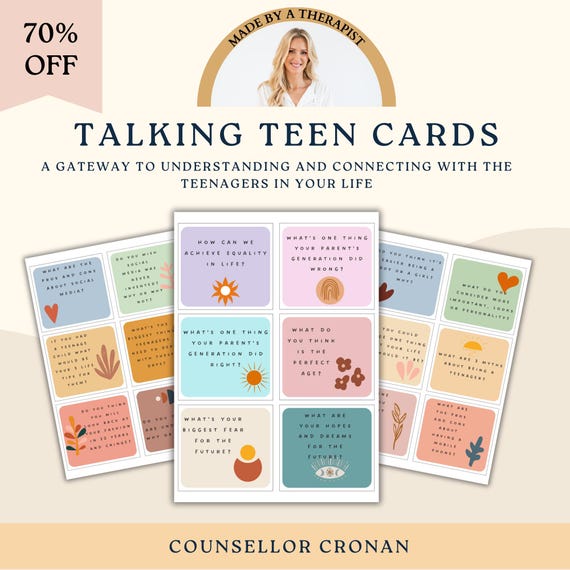How teenage counselling near me can support students in school
How Teen Treatment Can Promote and empower young minds Growth
Young adult therapy plays an essential duty in shaping the mental health of teens. It attends to the distinct obstacles they face, promoting psychological awareness and resilience. By checking out different healing techniques, young individuals can develop important coping techniques. This process not only help in individual development but likewise improves their capacity to navigate relationships. Understanding the dynamics of this healing journey exposes deeper understandings right into how it can essentially alter their path toward adulthood.
Comprehending the Relevance of Mental Health in Teenagers
Why is mental health and wellness crucial for teenagers during their formative years? This duration is noted by fast physical, emotional, and cognitive modifications. Teenagers commonly browse facility social characteristics, scholastic stress, and the mission for identity, making mental health and wellness an essential part of their overall well-being. Healthy mindsets allow teenagers to develop resilience, cultivate self-esteem, and handle stress and anxiety properly. Dealing with mental wellness concerns early can stop long-term emotional problems, enabling teens to prosper academically and socially.
Comprehending psychological wellness in teenagers entails acknowledging the unique difficulties they face. Recognition and assistance can promote open communication, enabling young people to reveal their sensations and look for assistance when required. By prioritizing mental health and wellness, culture can encourage young adults to build coping techniques, develop healthy and balanced partnerships, and achieve their full potential. Eventually, nurturing psychological health during these developmental years lays the structure for a well balanced, fulfilling their adult years.
Usual Difficulties Encountered by Teens
Adolescents commonly run into numerous obstacles that can substantially affect their mental health. Psychological guideline struggles, peer stress characteristics, and scholastic anxiety management are typical concerns that form their experiences. Dealing with these obstacles is important for promoting strength and empowerment in young adults.
Emotional Law Struggles
Numerous teens experience significant emotional policy has a hard time as they navigate the complexities of adolescence. This developing stage is noted by varying emotions, typically resulting in difficulty managing feelings such as anxiousness, despair, and rage. Young people might discover themselves bewildered by their emotional reactions, resulting in impulsive actions or withdrawal. Aspects such as hormonal modifications, public opinions, and scholastic difficulties intensify these struggles. Several teens lack the coping methods required to express their feelings appropriately, which can cause disputes in relationships and impede personal development. Furthermore, feelings of seclusion may emerge, as they commonly believe their experiences are distinct. Acknowledging and attending to these emotional regulation problems via treatment can empower teens to develop healthier coping devices and foster strength.
Peer Stress Dynamics
Browsing the psychological turbulence of adolescence typically brings teens face-to-face with peer pressure characteristics. This effective impact can dramatically shape their selections, behaviors, and self-image. Teenagers may feel urged to adapt to their peers' expectations, leading to dangerous behaviors, such as compound use or undesirable partnerships. The desire for acceptance and fear of being rejected intensify these pressures, frequently leading to interior dispute. Teens may have a hard time to insist their individuality, being afraid reaction from their peer groups. Therapy can supply a safe area for young individuals to discover these characteristics, enabling them to develop approaches for standing up to unfavorable impacts (therapist for teens near me). Through empowerment and self-awareness, adolescents can learn to browse peer stress a lot more properly, cultivating strength and promoting healthier decision-making

Academic Stress Management
How do academic pressures impact the well-being of teenagers? For many teenagers, the pursuit of high qualities and university readiness commonly brings about frustrating tension. This tension manifests in various means, including stress and anxiety, anxiety, and physical health and wellness problems. The anxiety of failure and the relentless competitors can create a toxic atmosphere that prevents emotional and social advancement. Additionally, impractical assumptions from teachers and moms and dads can exacerbate sensations of insufficiency. Teenagers may struggle to stabilize academics with extracurricular tasks, further increasing their tension degrees. Efficient academic tension management approaches, such as time monitoring, relaxation techniques, and seeking assistance, become vital. By addressing these obstacles, therapy can empower adolescents to create healthier coping mechanisms, promoting durability and promoting total wellness.
The Role of Treatment in Teen Advancement
As adolescents change through the intricacies of teen years, therapy emerges as an important support group, cultivating emotional strength and individual development. Throughout this developmental period, teenagers face identity, peer stress, and emotional upheaval. Therapy supplies a risk-free room for them to discover their feelings, ideas, and habits without judgment. This exploration improves their self-awareness, allowing them to understand their feelings and responses more deeply.
Furthermore, therapy assists teens develop coping approaches to manage anxiety and stress and anxiety, important skills that will certainly profit them throughout life. By participating in healing conversations, teenagers this discover to verbalize their requirements and establish much healthier partnerships. This process not only promotes private growth however likewise adds to better interaction and conflict resolution skills. Eventually, treatment works as an important device in leading young adults towards favorable growth, empowering them to browse the difficulties of teenage years with confidence and strength
Methods Utilized in Teenager Treatment
In young adult treatment, numerous strategies are used to cultivate empowerment and individual growth. Cognitive Behavioral Techniques concentrate on improving adverse idea patterns, while Expressive Arts Treatments urge self-discovery with innovative expression. Together, these approaches give teenagers with useful tools to browse their emotional and psychological challenges.
Cognitive Behavior Methods
Cognitive Behavioral Methods (CBT) play a vital function in teenager treatment, particularly as they address the distinct challenges dealt with during teenage years. These methods concentrate on determining and modifying adverse idea patterns that contribute to psychological distress and behavioral concerns. By motivating teenagers to acknowledge irrational ideas and replace them with useful thoughts, CBT promotes resilience and coping approaches. Therapists often use tools such as thought documents, behavior experiments, and exposure tasks to aid adolescents face their fears and establish much healthier reactions. CBT highlights goal-setting, which equips young adults to take ownership of their progression. This structured method not only alleviates signs of anxiousness and depression however likewise gears up young people with abilities to navigate life's obstacles better.
Expressive Arts Treatments
While typical talk therapies might not reverberate with every teen, Expressive Arts Treatments offer an alternative strategy that takes advantage of creativity as a method of self-expression and healing. This technique integrates various art forms, including paint, dramatization, music, and dancing, permitting teens to communicate emotions and experiences that may be hard to verbalize verbally. Participating in these imaginative procedures can promote self-discovery, increase confidence, and assist in emotional processing. The non-judgmental environment of expressive arts permits teens to discover their identities and cope with obstacles in an encouraging setup. By incorporating expressive arts into therapy, professionals can supply an alternative method that not just addresses psychological struggles however likewise empowers young minds to expand and prosper.
Building Resilience Via Restorative Practices
As adolescents browse the complexities of their developing years, developing resilience via restorative techniques ends up being necessary for their emotional well-being. Reliable restorative approaches, such as cognitive-behavioral treatment and mindfulness techniques, encourage teenagers to challenge difficulties and create dealing techniques. By finding out to determine and handle their emotions, young people can cultivate a higher feeling of self-efficacy.

Involving in treatment allows teenagers to discover their thoughts and sensations in a safe environment, promoting flexibility despite misfortune. This process motivates them to view troubles as opportunities for growth instead than insurmountable barriers. Team treatment my latest blog post settings additionally enhance durability by cultivating social connections and providing peer support, reinforcing the concept that they are not alone in their battles.
Ultimately, restorative techniques work as essential tools, outfitting teenagers with the abilities essential to browse life's obstacles and emerge stronger and a lot more resistant in their trip towards their adult years.
The Long-Term Perks of Engaging in Treatment
Taking part in therapy throughout teenage years can yield significant long-lasting advantages that extend well into their adult years. By resolving emotional and mental obstacles early, young adults can establish much healthier coping devices that persist throughout their lives. Therapy promotes self-awareness, encouraging young people to comprehend their ideas and sensations much better, which can lead to improved decision-making skills.
Regular therapeutic engagement can enhance interpersonal relationships. Teenagers often learn effective communication and conflict-resolution techniques, which can strengthen connections with peers, household, and future associates. This foundation of emotional intelligence typically leads to boosted durability against stress and anxiety and adversity.
Additionally, individuals that join treatment throughout their developmental click here for info years may experience decreased dangers of mental health concerns later on in life. Eventually, early healing intervention equips young adults with crucial devices for navigating life's intricacies, advertising both personal development and general well-being as they change into adulthood.
Regularly Asked Concerns

Just How Can Parents Support Their Teens During Therapy Sessions?
Parents can support their teenagers during therapy sessions by actively listening, appreciating their personal privacy, urging open communication, and validating their feelings. They ought to likewise remain individual and understanding as their teens browse the restorative process.
What Should a Teen Expect in Their Very First Therapy Consultation?
In their very first therapy visit, a teenager can anticipate an introductory discussion, discussing their feelings and concerns. The specialist will certainly produce a safe environment, establish goals, and clarify privacy to promote count on and openness.
Exist Age Limits for Teenagers Seeking Treatment?
There are generally no stringent age restrictions for teens looking for treatment; nevertheless, solutions may differ by provider - teenage counselling near me. Most therapists consider clients aged 13 to 19, while more youthful youngsters might need adult participation or alternative resources
Exactly How Can Teenagers Find a Therapist They Link With?
Teenagers can locate a therapist by seeking suggestions from relied on adults, investigating on-line directory sites, or utilizing institution resources. Structure relationship via initial examinations helps guarantee a comfy connection, crucial for effective treatment and individual development.
Is Online Treatment Reliable for Young Adults?

Online therapy can be effective for teenagers, giving versatility and ease of access. Lots of young people appreciate the comfort of digital sessions, which can boost openness and facilitate communication, eventually adding to their emotional wellness and individual development.
Teen treatment plays a crucial role in shaping the mental well-being of adolescents. In teenager therapy, various techniques are employed to foster empowerment and personal growth. Cognitive Behavior Strategies (CBT) play a crucial duty in young adult treatment, specifically as they resolve the one-of-a-kind difficulties dealt with during adolescence. While conventional talk therapies may not reverberate with every young adult, Meaningful Arts Therapies offer an alternative approach that takes advantage of imagination as a means of self-expression and recovery. Effective healing techniques, such as cognitive-behavioral treatment and mindfulness methods, encourage young adults to challenge difficulties and create coping approaches.